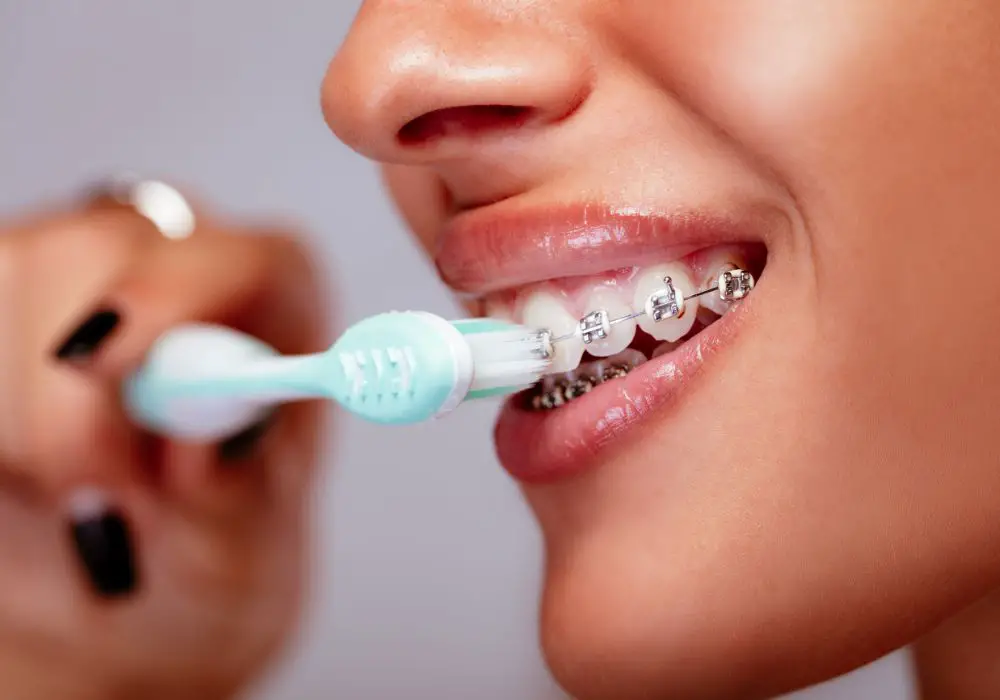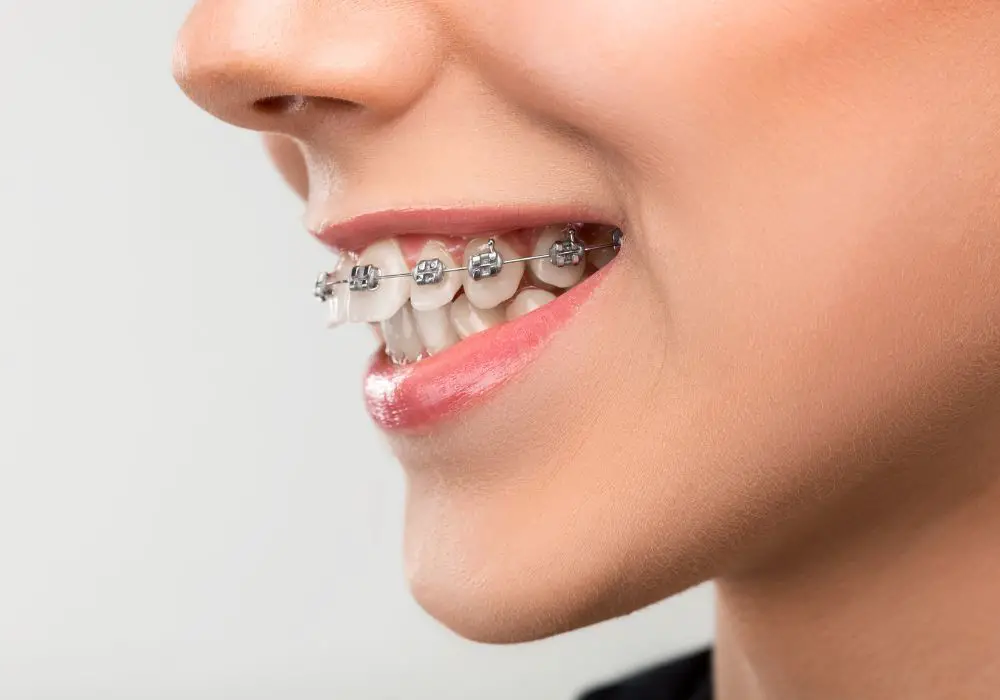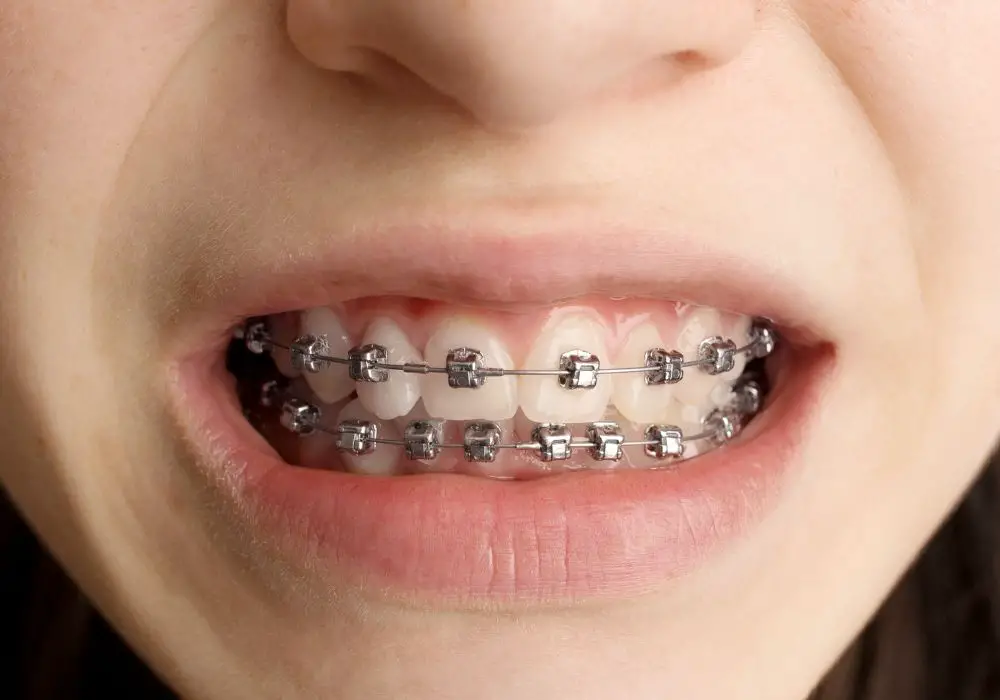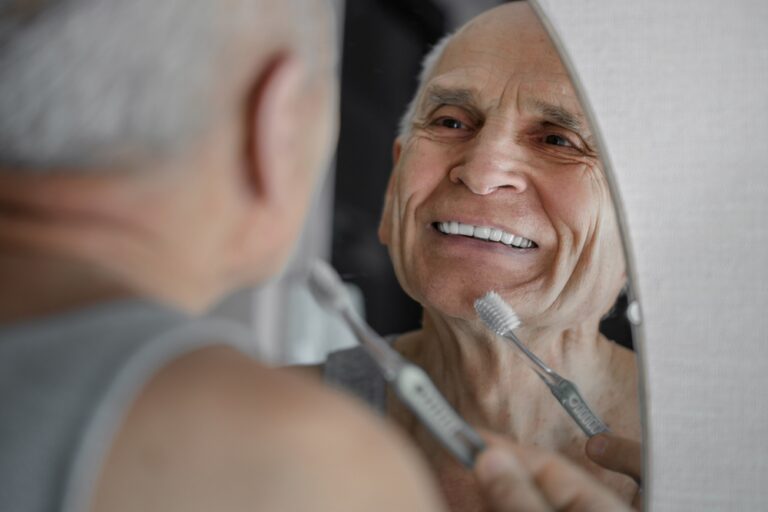If you’re considering getting braces, you may be wondering if you even need them. Perhaps your teeth aren’t that crooked, but you’re still self-conscious about them and want to improve your smile. The good news is that braces aren’t just for severely crooked teeth. In fact, many people get braces for mild to moderate issues with their teeth.
So, can you get braces if your teeth aren’t that crooked? The answer is yes! Braces can be used to correct a variety of dental issues, including spacing, crowding, and bite problems. Even if your teeth are only slightly crooked, braces can help improve their alignment and give you a straighter, more confident smile.
It’s important to note that the severity of your dental issues will determine the type of braces you need and how long you’ll need to wear them. Your orthodontist will be able to evaluate your teeth and recommend the best course of treatment for your specific needs. With the right treatment plan, you can achieve a beautiful, healthy smile that you’ll be proud to show off.
Understanding Orthodontics

If you’re considering getting braces, it’s important to understand what orthodontics is and why people get braces. In this section, we’ll cover the basics of orthodontics and answer some common questions about braces.
What are Braces?
Braces are a type of orthodontic treatment that use brackets and wires to gradually move teeth into their proper position. The brackets are attached to the teeth and the wires are threaded through them, applying gentle pressure to shift the teeth over time. Braces can be made of metal, ceramic, or clear materials, depending on your preferences and needs.
Why Do People Get Braces?
People get braces for a variety of reasons, including:
- Crooked or crowded teeth
- Overbite or underbite
- Misaligned jaw
- Gaps between teeth
- Difficulty chewing or speaking
- Self-consciousness about their smile
Orthodontic treatment can help improve the function and appearance of your teeth, as well as your overall oral health. By correcting alignment issues, braces can reduce the risk of tooth decay, gum disease, and other dental problems.
While braces are most commonly associated with teenagers, adults can also benefit from orthodontic treatment. In fact, more and more adults are getting braces to improve their smile and oral health.
In the next section, we’ll dive deeper into some of the specific issues that braces can address.
Assessing Your Dental Condition

When it comes to getting braces, it’s important to assess your dental condition to determine if you’re a good candidate for treatment. Here are some factors to consider:
Importance of Dental Examination
Before getting braces, it’s important to have a thorough dental examination. This will help your orthodontist determine the best course of treatment for your specific needs. During the examination, your orthodontist will evaluate your teeth, jaws, and bite to determine if braces are necessary.
Factors Considered by Orthodontists
There are several factors that orthodontists consider when determining if you need braces. These include:
- Crowding: If your teeth are crowded, braces can help straighten them out and create more space in your mouth.
- Overbite or Underbite: If your upper or lower teeth protrude too far forward or backward, braces can help correct this issue.
- Crossbite: If your upper and lower teeth don’t meet properly when you bite down, braces can help correct this issue.
- Open Bite: If you have a gap between your upper and lower teeth when you bite down, braces can help correct this issue.
- Jaw Alignment: If your jaws are misaligned, braces can help correct this issue and improve your overall bite.
Overall, the decision to get braces should be made in consultation with your orthodontist. They will be able to evaluate your dental condition and recommend the best course of treatment for your specific needs.
Braces for Less Crooked Teeth
If you have slightly crooked teeth, you may be wondering if braces are a viable option for you. The good news is that braces can be effective for correcting minor alignment issues, and can even provide some additional benefits beyond just straightening your teeth.
Benefits of Braces for Slightly Crooked Teeth
One of the primary benefits of braces for slightly crooked teeth is that they can help improve your overall oral health. When your teeth are properly aligned, it can be easier to keep them clean and free of plaque and other harmful bacteria. This can reduce your risk of developing gum disease and other dental problems in the future.
In addition to improving your oral health, braces can also help boost your self-confidence. Even if your teeth are only slightly crooked, they may still make you feel self-conscious about your smile. Braces can help correct these issues and give you a smile that you can be proud of.
Types of Braces Suitable for Slightly Crooked Teeth
There are several types of braces that are suitable for correcting slightly crooked teeth. These include:
- Traditional metal braces: These are the most common type of braces and are often the most affordable. They consist of metal brackets and wires that are attached to your teeth and gradually shift them into the correct position over time.
- Ceramic braces: These braces are similar to traditional metal braces but use tooth-colored or clear brackets and wires that are less noticeable.
- Lingual braces: These braces are attached to the back of your teeth, making them virtually invisible from the front. They can be a good option if you don’t want your braces to be noticeable.
- Clear aligners: These are a popular alternative to traditional braces and consist of a series of clear, removable trays that gradually shift your teeth into the correct position. They are often more expensive than traditional braces but can be more convenient for some people.
Overall, if you have slightly crooked teeth, braces can be a great option for improving your oral health and boosting your self-confidence. Talk to your dentist or orthodontist to determine which type of braces is right for you.
The Process of Getting Braces

If you’re considering getting braces, it’s important to understand the process involved. Here’s what you can expect when you decide to get braces for your teeth.
Consultation
The first step in getting braces is to schedule a consultation with an orthodontist. During this appointment, the orthodontist will examine your teeth, take x-rays, and discuss your treatment options with you. They will also answer any questions you have about the process.
Procedure
Once you’ve decided to get braces, the next step is to have them put on. This process typically takes one to two hours and is painless. The orthodontist will clean and dry your teeth, then apply a special bonding agent to attach the brackets to your teeth. Once the brackets are in place, the orthodontist will thread the archwire through them and secure it with elastic bands. You may feel some discomfort and soreness in the first few days after getting braces put on, but over-the-counter pain relievers can help alleviate this.
Aftercare
After getting braces, it’s important to take good care of them to ensure the best possible outcome. This includes brushing and flossing regularly, avoiding hard or sticky foods that can damage the brackets or wires, and visiting your orthodontist for regular check-ups and adjustments. Your orthodontist may also recommend using special tools like floss threaders or interdental brushes to help clean around the brackets and wires.
In summary, getting braces involves a consultation with an orthodontist, a painless procedure to attach the brackets and wires to your teeth, and ongoing aftercare to ensure the best possible outcome. By following your orthodontist’s instructions and taking good care of your braces, you can achieve a straighter, healthier smile.
Frequently Asked Questions
What are the benefits of getting braces if my teeth aren’t that crooked?
Getting braces even if your teeth aren’t that crooked can help improve your smile and boost your confidence. Braces can also help correct minor alignment issues that may cause discomfort or difficulty chewing.
Can I get braces if I only have a few crooked teeth?
Yes, you can still get braces even if you only have a few crooked teeth. In fact, braces can be used to correct any misalignment issues, no matter how minor they may seem.
How long will I need to wear braces if my teeth aren’t that crooked?
The length of time you will need to wear braces depends on the severity of your misalignment issues. If you only have a few crooked teeth, you may only need to wear braces for a few months to a year.
Are there any risks associated with getting braces for cosmetic reasons?
While getting braces for cosmetic reasons is generally safe, there are some risks involved. These include tooth decay, gum disease, and damage to the roots of your teeth. It’s important to discuss these risks with your dentist or orthodontist before getting braces.
Will getting braces for cosmetic reasons affect my dental health?
Getting braces for cosmetic reasons should not negatively affect your dental health. In fact, correcting minor alignment issues can improve your overall dental health by making it easier to brush and floss your teeth.
What are some alternatives to braces if my teeth aren’t that crooked?
If your teeth aren’t that crooked, there are several alternatives to braces that may be more suitable for you. These include clear aligners, such as Invisalign, and dental bonding, which involves applying a tooth-colored resin to your teeth to improve their appearance. It’s best to discuss these options with your dentist or orthodontist to determine which one is right for you.






